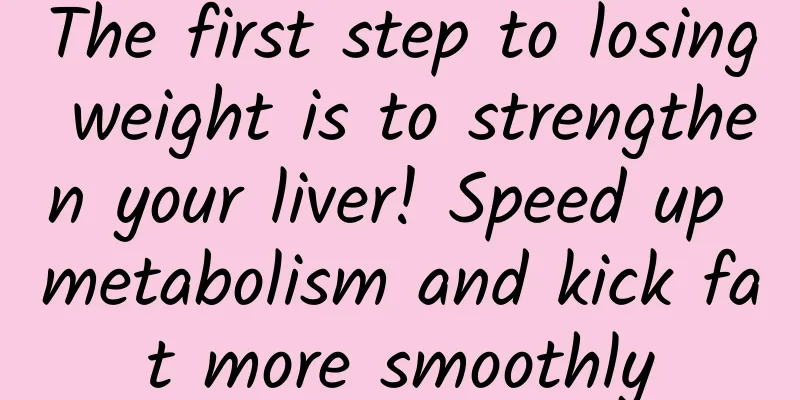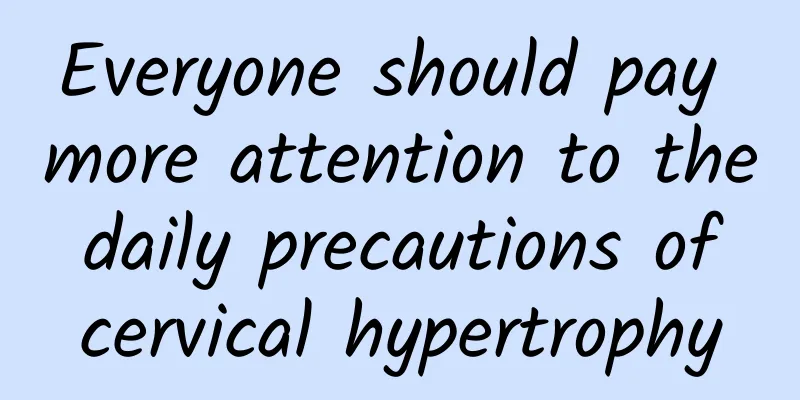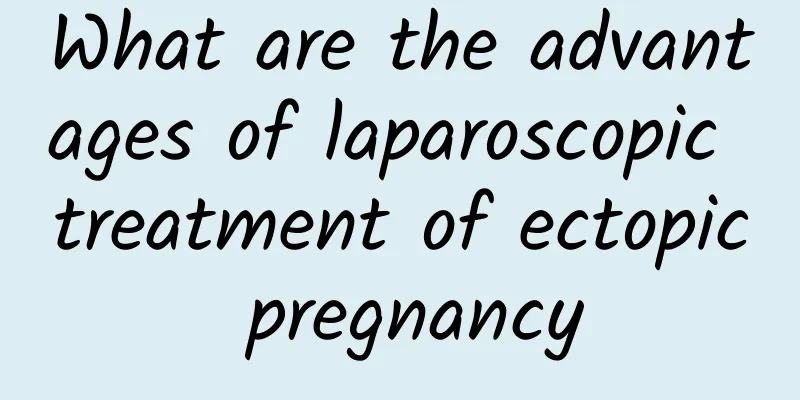The first step to losing weight is to strengthen your liver! Speed up metabolism and kick fat more smoothly

|
Dieting forces your metabolism to slow down in order to maintain basic physiological functions such as breathing and heartbeat required for survival. When metabolism slows down, people are more likely to gain weight. Dieting will also force muscles to dissolve protein, resulting in muscle loss, a decrease in the number of mitochondria, insufficient energy metabolism, and higher amounts of fat stored in the body. Excessive dieting can even cause cell apoptosis, premature aging, and damage health; in severe cases, it may cause anorexia and endanger life. A healthy liver can help normal metabolism and prevent fat accumulation Anabolic enzymes The liver is the organ in the human body that relies most on protein nutrients. Without protein, the liver cannot synthesize metabolic enzymes. If enough metabolic enzymes cannot be synthesized, the body's metabolism will slow down, and the food eaten cannot be fully converted into energy for the body's use. Instead, it will be converted into fat and accumulated in the body, causing obesity. Production of albumin If the liver cannot synthesize enough albumin, the body's excess water cannot be carried back to the blood vessels, causing edema. Edema not only makes people look fat, but also makes them feel "bloated", which is even worse than being "fat". Mitochondria Mitochondria, also known as "power plants," are the energy metabolism center of living organisms. Regardless of whether the human body ingests carbohydrates, fats, or protein amino acids, they are ultimately oxidized and converted into energy. The biochemical reactions that release energy all take place in the mitochondria. If the sperm tail lacks mitochondria, its activity will be too low, causing infertility. If the egg lacks mitochondria, the fertilized egg cannot implant in the uterus and conception cannot be successful. If the liver lacks mitochondria, it cannot detoxify effectively, which will seriously affect liver function. In the process of releasing energy, mitochondria need to carry out redox biochemical reactions, thus producing free radicals. Free radicals can damage mitochondria, causing them to wither and die. When the human body lacks mitochondria, it faces rapid aging. Having a healthy liver usually means having a strong detoxification function, which can effectively eliminate free radicals and maintain the health of mitochondria. This is one of the main reasons why people with abnormal liver function are particularly prone to fatigue. The human body's muscles and liver contain a large number of mitochondria. Therefore, the healthier the liver and the more muscles a person has, the more mitochondria he or she has, the higher his or her energy metabolism, the more energetic he or she is, and the less fat stored in the body. To lose weight you must increase the number of mitochondria in the human body. Without mitochondria, the human body lacks kinetic energy and becomes easily fatigued. Liver health, proper exercise and muscle building are the right ways to maintain a normal weight. This article comes from the Human Think Tank "Seven Detoxification Myths Corrected by Food Forest" |
<<: Potato weight loss new tool: cook it, freeze it and then eat it.
>>: Eat pears to lose weight! Research: One pill a day prevents obesity
Recommend
What are the causes of female vulva itching?
What is the cause of female vulvar itching? Femal...
Causes of Dysmenorrhea
Causes of Dysmenorrhea: Dysmenorrhea may be cause...
Will I get cancer after having an abortion for a hydatidiform mole?
Abortion of hydatidiform mole does not necessaril...
Will I have menstruation if I have an ectopic pregnancy?
Vaginal bleeding during ectopic pregnancy is not ...
How can patients with Bartholinitis take care of themselves?
Bartholinitis is an inflammation caused by infect...
How to treat physical weakness after abortion? Do you need to supplement vitamins after abortion?
Many women who have an unexpected pregnancy will ...
Can insufficient blood supply cause amenorrhea?
Will insufficient blood supply lead to amenorrhea...
How to treat acute cervicitis
Acute cervicitis is recommended to be relieved th...
Talk about the main symptoms of cervical erosion
Cervical erosion is very harmful to female patien...
Several common treatments for cervical erosion
As women's social status improves, they also ...
What are the commonly used methods for diagnosing vulvar leukoplakia in women?
Itching, dry skin, thickening and whitening of fe...
How to get pregnant after an ectopic pregnancy?
How to get pregnant after an ectopic pregnancy? E...
Introduction to the examination methods of menopause
Do women still need to undergo gynecological exam...
How to treat pelvic inflammatory disease? Chronic and acute
Pelvic inflammatory disease is divided into two t...
What medicine should I take for cervical erosion? There are 5 kinds of medicines available for patients with cervical erosion.
The occurrence of cervical erosion is relatively ...









